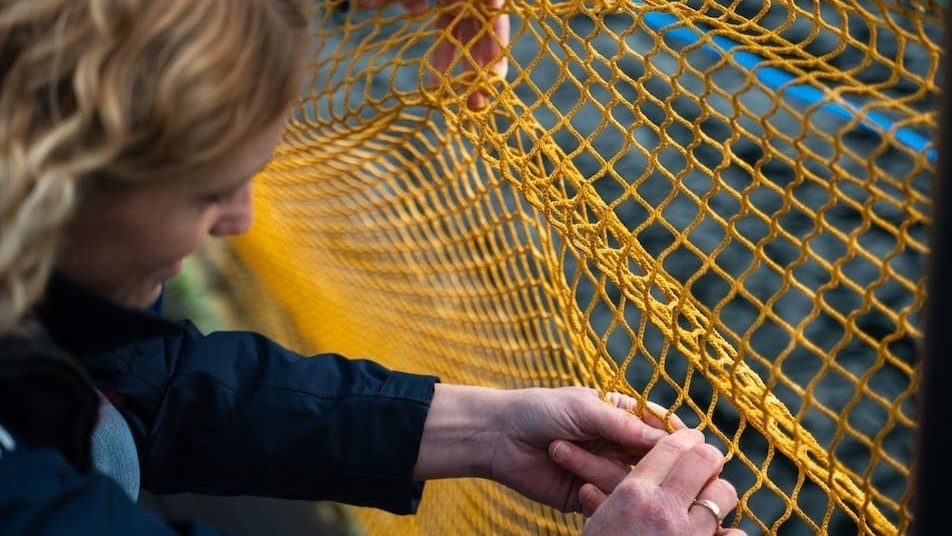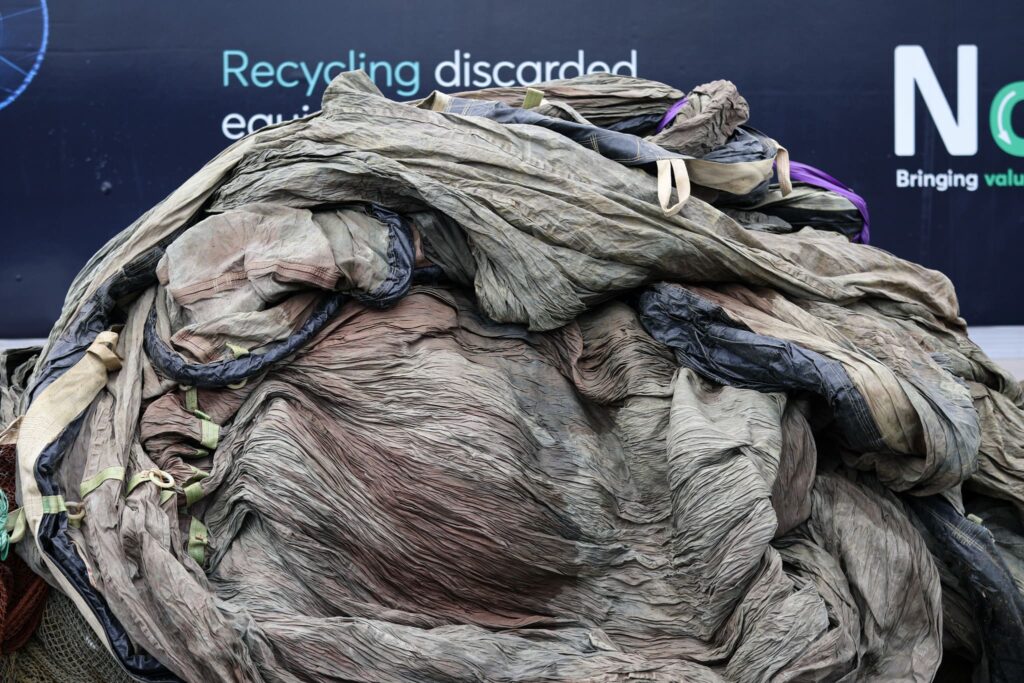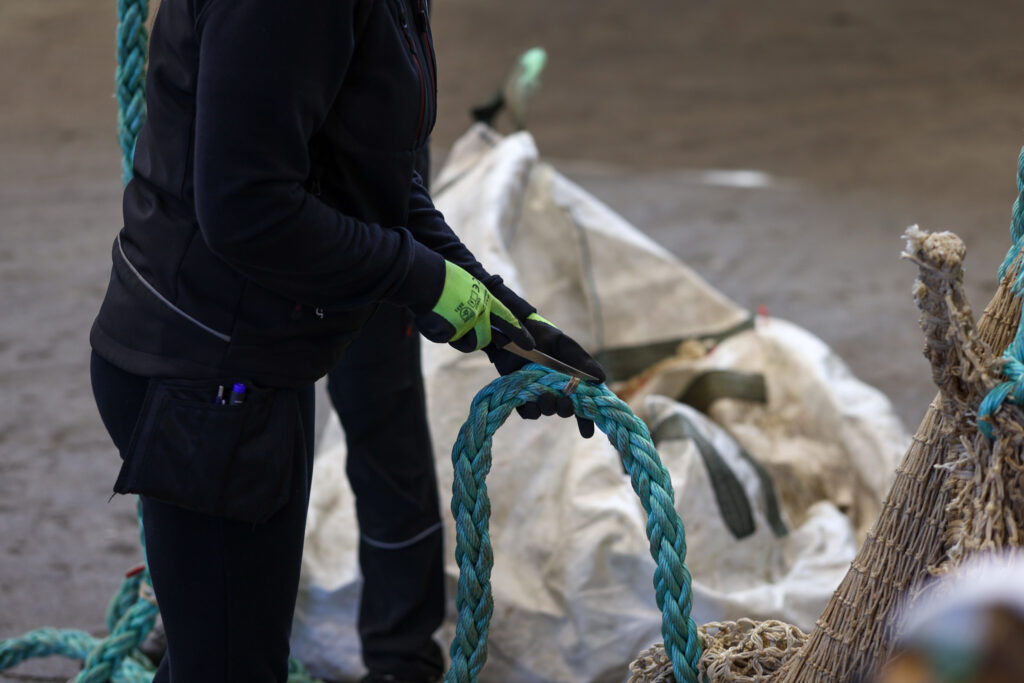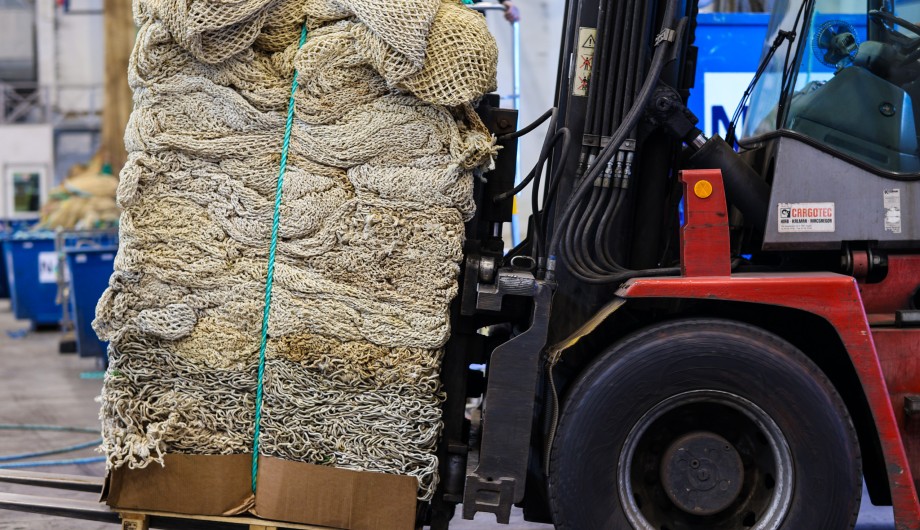
With more than half of the world’s seafood now farmed, aquaculture play a critical role in feeding a growing global population. Yet as the industry scales, so too do its environmental challenges. Fishing nets and aquaculture gear, built to be tough and long-lasting, can become major pollutants when improperly discarded. If left to drift, they pose a serious threat to marine ecosystems, entangling wildlife, degrading habitats, and contributing to ocean plastic.
“Circular practices reduce waste, lower resource consumption, and minimize the risk of marine pollution,” said Andreas Nordvik, Nofir’s Marketing and Business Development Manager. “By extending the life of materials and creating pathways for recycling, the industry can dramatically reduce its ecological footprint.”
Cleaning Up Aquaculture
For the past 15 years, Norway-based Nofir has been building the infrastructure to do just that. Founded to close a critical gap in end-of-life solutions for the aquaculture and fishery sectors, Nofir has developed a traceable system for collecting and recycling gear that would otherwise be stockpiled, buried, or lost at sea.
“These materials are durable and resource-intensive to produce, yet there were few systems in place for proper disposal or reuse,” says Nordvik. “We saw massive volumes of nets, ropes, and other gear accumulating around the world. Nofir emerged as a solution to close that gap, creating a structured, traceable, and global system to collect and recycle these materials.”
Collection is just the first step. What makes Nofir’s approach circular is what comes next: transformation. Through partnerships with organizations across the value chain, the company ensures that recovered materials are reused or recycled into new products.
“We advocate for reusing and recycling discarded fishery and fish farming equipment,” says Nordvik. “Sometimes that means giving nets a second life as sports or safety nets. Other times, they’re recycled into ECONYL® nylon, a regenerated material used in everything from fashion to flooring, and now, aquaculture itself.”
Innovating for Modern Aquaculture
That circular journey came full circle with the Circular Fish Farming Net project. In partnership with Aquafil (makers of ECONYL® nylon), Hampidjan, Grieg Seafood, and AKVA Group Egersund Net, Nofir set out to prove that regenerated materials could meet the extreme technical demands of fish farming in some of the world’s harshest conditions.
“Norwegian waters are among the harshest in the world,” Nordvik explains. “They are cold, turbulent, and biologically demanding. Equipment used here must withstand constant stress while remaining reliable over long production cycles.”
While recycled materials have traditionally struggled in such environments, this project marked a turning point. After extensive research and real-world testing, the team developed the first high-tenacity fish farming net made with ECONYL® regenerated nylon. Equally important, the nets themselves are fully recyclable at end-of-life—designed to be collected, regenerated, and reintroduced into the ECONYL® system.
Launched at sea earlier this year, the nets are a tangible step forward, not just for aquaculture, but for circular design across industries.
A Rising Tide of Change
Circularity is quickly becoming a shared priority across the entire value chain, from equipment manufacturers to seafood producers to regulators. “There’s growing recognition that responsible practices aren’t just good for the planet,” says Nordvik. “They’re good for business, too.”
While recycling remains central to Nofir’s mission, the company is also helping shift mindsets, showing that environmental challenges are opportunities for change.
“Innovations in materials, traceability, and recycling technologies are moving fast, and the industry is becoming more collaborative than ever,” Nordvik says. “We believe this industry can lead the way in showing how a major global industry can transition to more circular, sustainable models and we are proud to be a part of that journey.”



